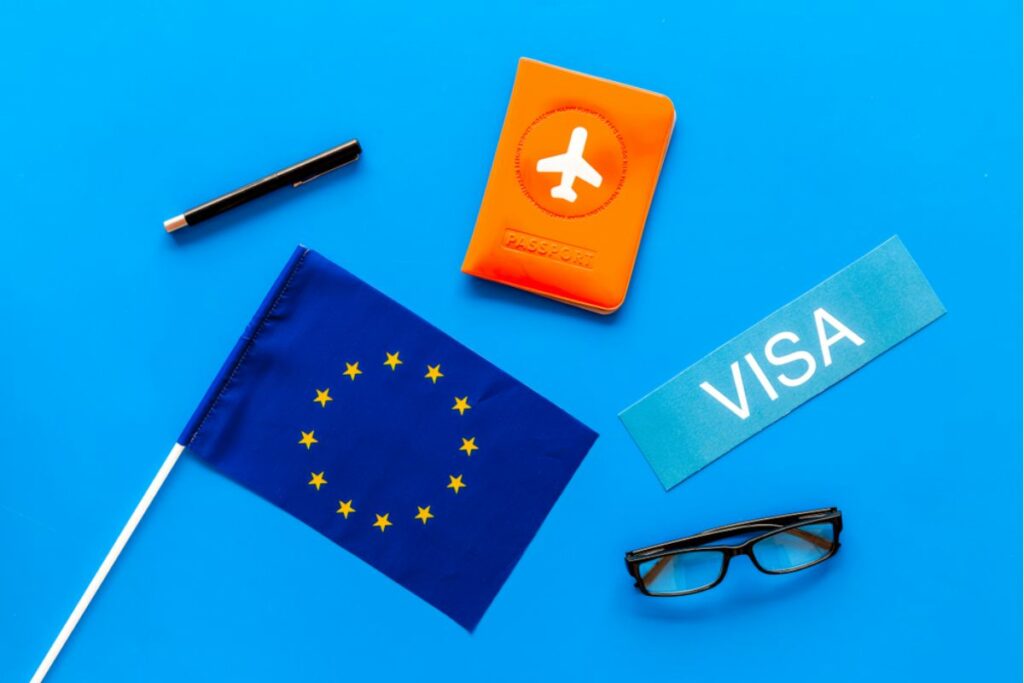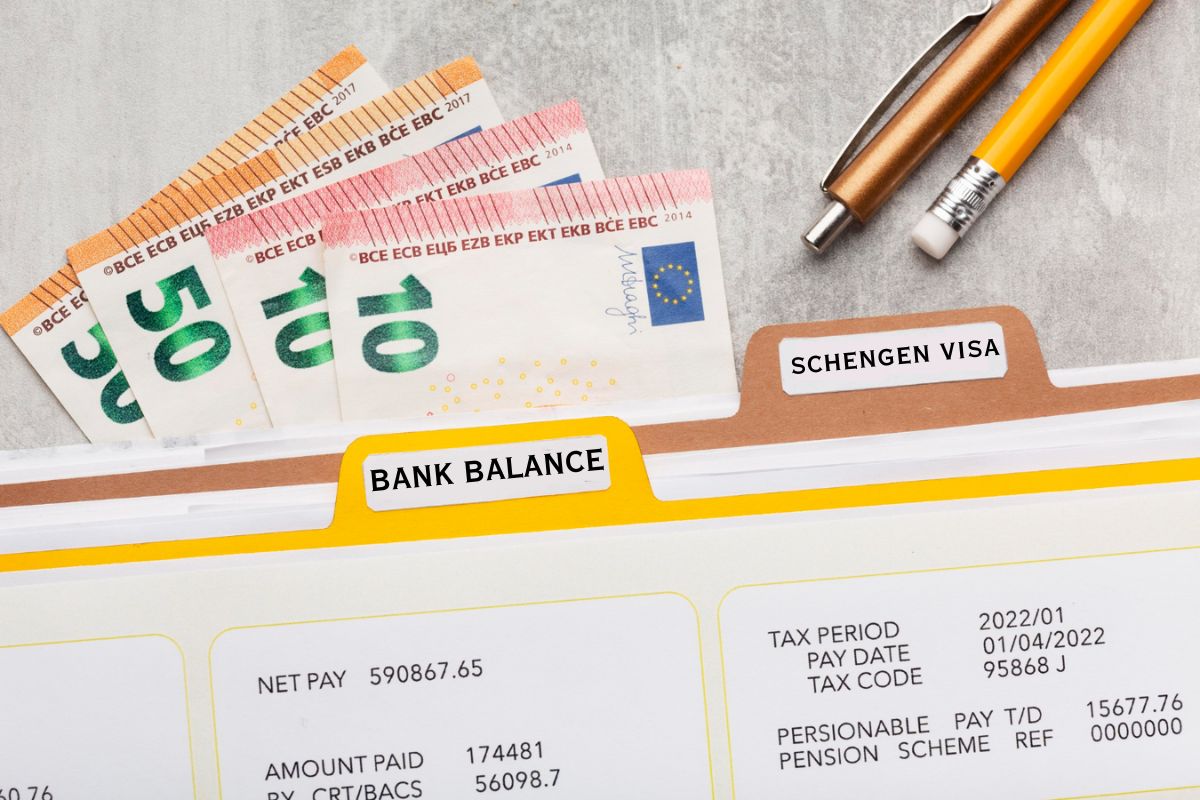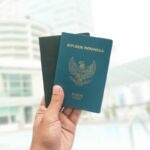Planning a trip to any of the captivating nations in the Schengen area? Exploring Europe’s diverse cultural heritage, stunning landscapes, and lively cities is undeniably an exciting prospect.
However, applying for a Schengen visa requires you to meet specific criteria, including proving that you have enough financial resources to support yourself during your trip. This is where the minimum bank balance comes in.
What is the Schengen Visa Minimum Bank Balance?
The Schengen visa minimum bank balance is the amount of money that you must have in your bank account to prove that you can support yourself during your trip to the Schengen area. The required amount varies depending on the country you are visiting and the length of your stay.
How to Calculate the Schengen Visa Minimum Bank Balance
To calculate the Schengen visa minimum bank balance, you will need to multiply the daily required amount by the number of days you plan to stay in the Schengen area. For example, if the daily required amount is EUR 50 and you plan to stay for 10 days, you will need to have a minimum of EUR 500 in your bank account.
Also Read: Schengen Visa Application Guide for Winter Holiday Travellers
Schengen Visa Minimum Bank Balance by Country

1. Austria
When applying for a Schengen visa to Austria, there isn’t a fixed minimum bank balance specified by the Austrian Embassies and Consulates. Instead, they evaluate each case individually, taking into account factors like the purpose, nature, and duration of your intended stay.
As a general guideline, it’s advisable to budget a minimum of EUR 100 per day, which represents the average daily expenditure for a tourist in Austria. In certain situations, other forms of payment, such as cash, traveller’s cheques, credit cards, bank guarantees, or letters from economically stable residents of Austria, may be accepted as evidence of sufficient funds.
2. Belgium
Belgium requires applicants to demonstrate the availability of sufficient financial resources for their stay. If you plan to stay with a friend or family member, you can provide a letter of guarantee signed by your host in Belgium, authenticated by the municipal administration of their residence.
This letter assures that your host will cover all your financial expenses during your stay.
Additionally, you must prove that you have a minimum daily amount of EUR 45 available for expenses while in Belgium. If you’ll be staying in a hotel, the required daily amount increases to approximately EUR 95, and you must also have a valid return ticket.
3. Croatia
Entering Croatia may necessitate proof of adequate funds to cover expenses during your stay, return, or onward travel. According to the Croatian Immigration Office, travellers are typically required to demonstrate financial means of €95 per day for hotel accommodation or €45 per day for more budget-friendly lodging options.
4. Czech Republic
The Czech Republic outlines specific reference amounts for short-term stays based on the duration of your visit:
- For stays up to 30 days: Minimum of CZK 1,565 per day.
- For stays exceeding 30 days (up to a maximum of 90 days): Minimum of 15 times CZK 3,130, with an additional 2 times CZK 3,130 for each full month.
5. Denmark
Denmark mandates that individuals applying for a Schengen visa must have financial resources amounting to DKK 350 per day. Additionally, applicants must provide evidence of sufficient funds for their return trip, including a valid return ticket.
6. Estonia
When entering Estonia without an invitation letter, you need to demonstrate financial means equal to 0.2 times the monthly minimum salary set by the Government of the Republic, which is currently approximately EUR 130.80 per allowed day of stay. Alternatively, if someone in Estonia invites you, they will be responsible for covering your expenses.
7. Finland
Finland assesses the sufficiency of funds on a case-by-case basis, but approximately EUR 30 per day is generally considered necessary for expenses, depending on accommodation arrangements and sponsor availability.
8. France
For a French visa, having at least EUR 65 per day is a general requirement. However, the amount may vary depending on your accommodation arrangements:
- Staying with a family member or friend who invited you: Half of the minimum wage, which is EUR 32.50 per day.
- Hotel reservation: EUR 65 per day.
- Partial hotel reservation (with a few days reserved): EUR 65 per day for reserved days and EUR 120 per day for the remaining days without a reservation.
- No accommodation arrangements: Minimum of EUR 120 per day.
9. Germany
Germany requires proof of a minimum of EUR 45 per day when applying for a Schengen visa. Visa assessments consider various factors, including the duration of your stay, accommodation, and the purpose of your visit. Accepted forms of proof include cash, credit cards, checks, and various guarantees.
10. Greece
Foreign nationals, excluding European Union Member State nationals, need EUR 50 per person per day for subsistence in Greece, with a minimum total of EUR 300 for stays up to 5 days. For minors, these amounts are reduced by 50%.
11. Hungary
For entry to Hungary, a reference amount of HUF 10,000 per entry is required for third-country nationals or family members of EEA citizens. Various forms of certification for means of subsistence are accepted.
12. Iceland
Iceland’s legislation requires proof of adequate financial resources, typically ISK 4,000 per person. When someone else assumes responsibility for costs, the required sum is halved, making it ISK 20,000 minimum entry amount per traveller.
13. Italy
For Italian visas, the minimum bank balance varies based on the number of days and travellers:
- 1 to 5 days: EUR 296.60 for one individual, EUR 212.81 for two or more individuals.
- 6 to 10 days: EUR 44.93 for one individual, EUR 26.33 for two or more individuals.
- 11 to 20 days: EUR 51.64 and EUR 36.67 (daily sum per person) for one individual, EUR 25.82 and EUR 22.21 (daily sum per person) for two or more individuals.
- More than 20 days: EUR 206.58 and EUR 27.89 (daily sum per person) for one individual, EUR 118.79 and EUR 17.04 (daily sum per person) for two or more individuals.
14. Latvia
To enter and stay in Latvia, you must demonstrate funds of EUR 14 per day of your stay.
15. Liechtenstein
Applicants for a Schengen visa to Liechtenstein must have a minimum of CHF 100 per day in their bank account to cover expenses.
16. Lithuania
The minimum daily amount required for stays in Lithuania is EUR 40 per person.
17. Luxembourg
To travel to Luxembourg, the reference amount is based on the minimum wage for an unskilled worker, approximately EUR 67 per day. The amount adjusts proportionally to the duration of your stay.
18. Netherlands
In the Netherlands, border control officials generally consider a basis of EUR 55 per person per day as a means of subsistence. However, this amount can vary based on the duration of your stay, the purpose of your visit, and individual circumstances.
19. Norway
Norway assesses required funds on a case-by-case basis, with factors such as duration of stay, accommodations, return tickets, and stay guarantees considered. As a general indication, EUR 48 per day is often sufficient for visitors not staying with relatives or friends.
20. Poland
Poland’s regulations specify different amounts depending on the circumstances:
- Stays up to 4 days: At least PLN 300.
- Stays exceeding 4 days or other specific conditions: PLN 75 per day.
- Educational, scientific, research, or development purposes: Minimum of PLN 1,270.
- Additional financial resources required for return journey expenses vary based on nationality.
21. Slovakia
Slovakia requires EUR 56 per person per day, comprising various expense categories such as accommodation, meals, and spending money.
22. Slovenia
In Slovenia, the daily subsistence amount is EUR 70 for individuals and 50% of EUR 70 for minors accompanied by their parents or legal representatives.
23. Spain
Spain’s visa requirements depend on factors like the minimum interprofessional salary, the duration of stay, and the number of travellers. A minimum of EUR 100 per person per day, with a minimum of EUR 900 for those staying in Spain, is often required.
24. Sweden
Sweden sets a reference amount of SEK 450 per day for crossing the border.
25. Switzerland
Foreign nationals covering their expenses during their Swiss stay must provide proof of around CHF 100 per day. Students with a valid student card may need approximately CHF 30 daily.
Schengen Visa – Minimum Bank Balance
For the convenience of our readers, we have also compiled the following table showing the Schengen visa minimum bank balance for each Schengen country:
| Country | Daily Required Amount |
|---|---|
| Austria | EUR 100 |
| Belgium | EUR 45 (if staying with a friend or family member) or EUR 95 (if staying in a hotel) |
| Croatia | EUR 95 (if staying in a hotel) or EUR 45 (if staying in more affordable accommodation) |
| Czech Republic | CZK 1,565 (for stays of up to 30 days) or CZK 46,950 plus CZK 6,260 for each complete month (for stays exceeding 30 days) |
| Denmark | DKK 350 |
| Estonia | EUR 130.80 |
| Finland | EUR 30 |
| France | EUR 65 (if staying with a friend or family member or staying in a hotel), EUR 120 (if having a partial hotel reservation), or EUR 120 (if having no accommodation arrangements) |
| Germany | EUR 45 |
| Greece | EUR 50 |
| Hungary | HUF 10,000 |
| Iceland | ISK 4,000 |
| Italy | EUR 296.60 (for stays of 1 to 5 days), EUR 44.93 (for stays of 6 to 10 days), EUR 51.64 and EUR 36.67 (daily sum per person) (for stays of 11 to 20 days), or EUR 206.58 and EUR 27.89 (daily sum per person) (for stays of more than 20 days) |
| Latvia | EUR 14 |
| Liechtenstein | CHF 100 |
| Lithuania | EUR 40 |
| Luxembourg | EUR 75 |
| Malta | EUR 48 |
| Netherlands | EUR 55 |
| Norway | NOK 500 |
| Poland | PLN 200 |
| Portugal | EUR 75 |
| Slovakia | EUR 55 |
| Slovenia | EUR 55 |
| Spain | EUR 100 |
| Sweden | SEK 450 |
| Switzerland | CHF 100 |
This comprehensive guide outlines the Schengen visa minimum bank balance requirements for each country, ensuring you're well-prepared for your European adventure. Keep in mind that these requirements are subject to change, so it's essential to verify the latest information from the respective embassies and consulates before applying for your Schengen visa.How to Prove that You Meet the Schengen Visa Minimum Bank Balance Requirement
To prove that you meet the Schengen visa minimum bank balance requirement, you will need to submit a bank statement that shows that you have the required amount of money in your account. The bank statement should be no more than 30 days old.
Additional Tips
- It is important to note that the Schengen visa minimum bank balance is just a minimum requirement. You may want to have more money in your bank account to cover unexpected expenses.
- If you are staying with a friend or family member, you may be able to provide a letter of support from them instead of a bank statement. The letter of support should state that your friend or family member will be covering your expenses during your stay.
- If you are a student, you may be able to provide a copy of your student ID card instead of a bank statement.
Conclusion
Meeting the Schengen visa minimum bank balance requirement is an important step in applying for a Schengen visa. By understanding the requirements and calculating the required amount, you can ensure that you have the best chance of having your visa application approved.
Follow and connect with us on Facebook, Twitter, LinkedIn, Instagram and Google News for the latest travel news and updates!





